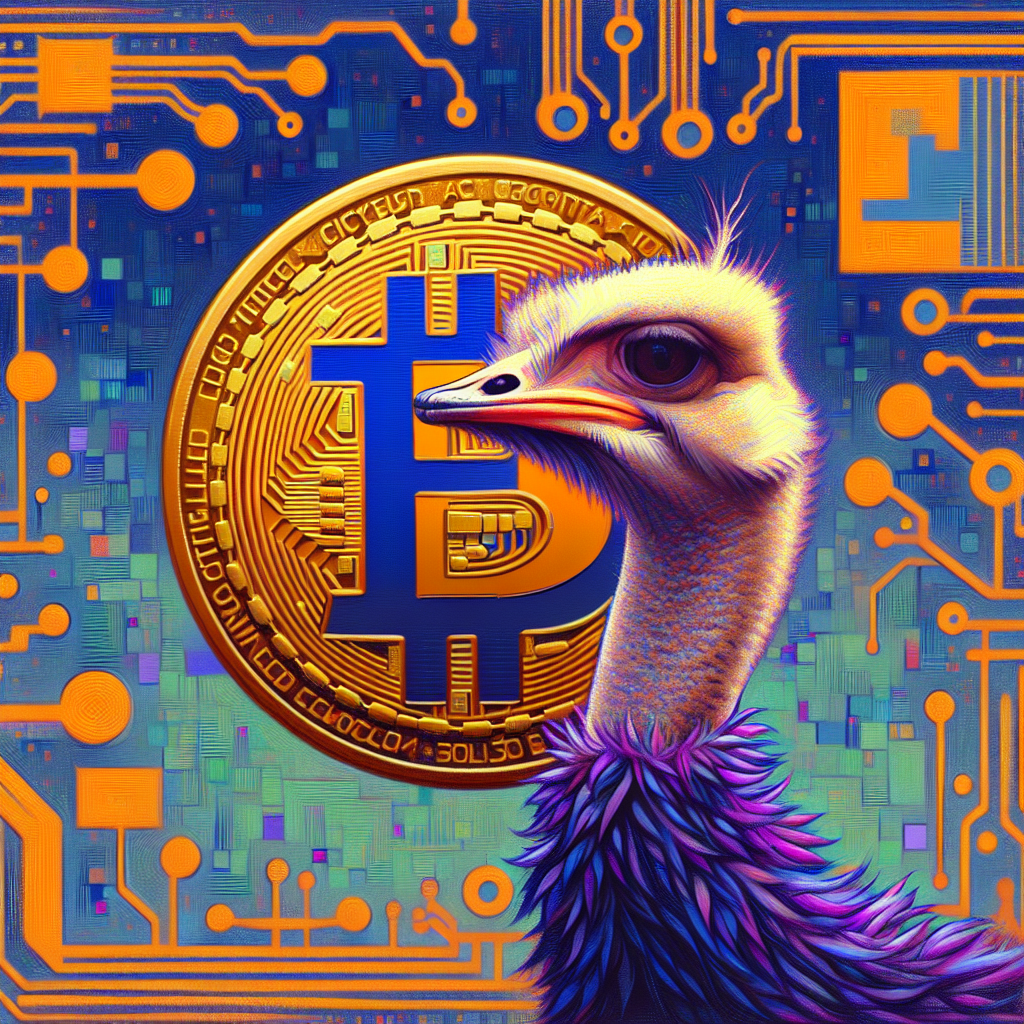CBDC Tracker Bot on Nostr: ⚠️ HRF CBDC ⛓️🪙 alert from HRF for Brazil (29-JUN-2024) 🗝️ℹ️ (Key ...
⚠️ HRF CBDC ⛓️🪙 alert from HRF for Brazil (29-JUN-2024)
🗝️ℹ️ (Key Information)
CBDC Status: Pilot
CBDC Launch: 2023-03-01
CBDC Model: n/a
CBDC Issued: n/a
Inflation Rate: 9.28%
**TEXT**
According to a recent report from the Human Rights Foundation, the Government of Nigeria has announced plans to develop a Central Bank Digital Currency (CBDC) this year. Backed by the Central Bank of Nigeria, the digital currency project aims to provide citizens with unrestricted and affordable access to financial services.
However, critics argue that the government could potentially exploit the digital currency for surveillance purposes, as a centralized authority would have full transactional visibility. These critics are particularly concerned about the authoritarian potential of CBDCs as the government could use the system to control and monitor citizen financial activities.
The Central Bank of Nigeria has countered these allegations, stating that it will implement secure technology and respect people's privacy. The bank insists that the primary goal of the digital currency project is to modernize payments, facilitate economic growth, and reduce the cost of transacting money in the country.
Nigeria joins a growing list of countries like China and Venezuela that are experimenting with CBDCs. The Human Rights Foundation suggests that as more countries adopt digital currencies, it's crucial to have a conversation about the balance between privacy and financial inclusion.
**One-Sentence Summary**
The Government of Nigeria's plans to develop a Central Bank Digital Currency face controversy over privacy concerns and potential government surveillance despite assurances for secure technology and growth facilitation from the Central Bank.
✅ 🇳🇬's Government and Central Bank plan to implement a Central Bank Digital Currency (CBDC) within this year, aimed at providing affordable and unrestricted financial services to citizens.
✅ Critics are alarmed by the potential of government surveillance facilitated by a centralized CBDC, with fears of the system being used to monitor and control citizens' financial activities.
✅ Despite backlash, the Central Bank of Nigeria assures protective technology measures and respect for privacy alongside the driving force to modernize payments, facilitate economic growth and reduce any costs involved with money transactions.
✅ Human Rights Foundation implies that as more nations such as China and Venezuela engage in CBDCs, privacy and financial inclusion balance discussions become significantly important.
**Hashtags**
#CBDCs #HumanRights #PrivacyProtection #FinancialInclusion #Nigeria
**Question**
As this new era of Central Bank Digital Currencies emerges, how do you envision striking the balance between privacy protection and financial inclusion, particularly in countries with histories of government surveillance? Let's hear your diverse thoughts!
Disclaimer: This is an AI-generated summary of the original text from HRF, forigve fuck-ups plox. If you find it useful, ⚡ the Tracker Bot because the AI and Cloud bits are not free to run.
Source of data: https://cbdctracker.hrf.org/home (npub1zhqcda52mrvcc0vkwegwsp5xtpk6l6x5kqx85f06tu9lw5h6xx0scch0dw)
CBDC Tracker bot brought to you by npub18s59mqct7se3xkhxr3epkagvuydwtvhpsacj67shrta8eknynegqttz5c3
#plebstr

🗝️ℹ️ (Key Information)
CBDC Status: Pilot
CBDC Launch: 2023-03-01
CBDC Model: n/a
CBDC Issued: n/a
Inflation Rate: 9.28%
**TEXT**
According to a recent report from the Human Rights Foundation, the Government of Nigeria has announced plans to develop a Central Bank Digital Currency (CBDC) this year. Backed by the Central Bank of Nigeria, the digital currency project aims to provide citizens with unrestricted and affordable access to financial services.
However, critics argue that the government could potentially exploit the digital currency for surveillance purposes, as a centralized authority would have full transactional visibility. These critics are particularly concerned about the authoritarian potential of CBDCs as the government could use the system to control and monitor citizen financial activities.
The Central Bank of Nigeria has countered these allegations, stating that it will implement secure technology and respect people's privacy. The bank insists that the primary goal of the digital currency project is to modernize payments, facilitate economic growth, and reduce the cost of transacting money in the country.
Nigeria joins a growing list of countries like China and Venezuela that are experimenting with CBDCs. The Human Rights Foundation suggests that as more countries adopt digital currencies, it's crucial to have a conversation about the balance between privacy and financial inclusion.
**One-Sentence Summary**
The Government of Nigeria's plans to develop a Central Bank Digital Currency face controversy over privacy concerns and potential government surveillance despite assurances for secure technology and growth facilitation from the Central Bank.
✅ 🇳🇬's Government and Central Bank plan to implement a Central Bank Digital Currency (CBDC) within this year, aimed at providing affordable and unrestricted financial services to citizens.
✅ Critics are alarmed by the potential of government surveillance facilitated by a centralized CBDC, with fears of the system being used to monitor and control citizens' financial activities.
✅ Despite backlash, the Central Bank of Nigeria assures protective technology measures and respect for privacy alongside the driving force to modernize payments, facilitate economic growth and reduce any costs involved with money transactions.
✅ Human Rights Foundation implies that as more nations such as China and Venezuela engage in CBDCs, privacy and financial inclusion balance discussions become significantly important.
**Hashtags**
#CBDCs #HumanRights #PrivacyProtection #FinancialInclusion #Nigeria
**Question**
As this new era of Central Bank Digital Currencies emerges, how do you envision striking the balance between privacy protection and financial inclusion, particularly in countries with histories of government surveillance? Let's hear your diverse thoughts!
Disclaimer: This is an AI-generated summary of the original text from HRF, forigve fuck-ups plox. If you find it useful, ⚡ the Tracker Bot because the AI and Cloud bits are not free to run.
Source of data: https://cbdctracker.hrf.org/home (npub1zhqcda52mrvcc0vkwegwsp5xtpk6l6x5kqx85f06tu9lw5h6xx0scch0dw)
CBDC Tracker bot brought to you by npub18s59mqct7se3xkhxr3epkagvuydwtvhpsacj67shrta8eknynegqttz5c3
#plebstr